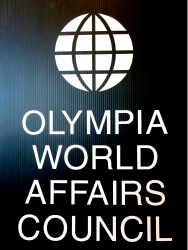Iran remains one of the last "unglobalized" countries, resistant to political change and international integration since 1979. While initially a revolutionary state, the leadership increasingly pursues a contradictory policy at home and abroad in hopes of limiting political change. What are the prospects for political reform, liberalization and democracy? How would this affect Iran's relationship to the region and the world?

Patrick H. O’Neil is Professor of Politics and Government at the University of Puget Sound in Tacoma, Washington. He received his Ph.D. in Political Science from Indiana University. Professor O’Neil’s teaching and research interests are in the areas of authoritarianism and democratization. His past research focused on Eastern Europe, and his current research deals with the Middle East, particularly Iran. His publications include "Revolution from Within: The Hungarian Socialist Worker’s Party "Reform Circles" and the Collapse of Communism;" "Everywhere is Karbala: Shia Ritual Politics in Iran and Beyond," and "A Messianic State? Ideology, Rationality and Eschatology in Iranian Politics."
